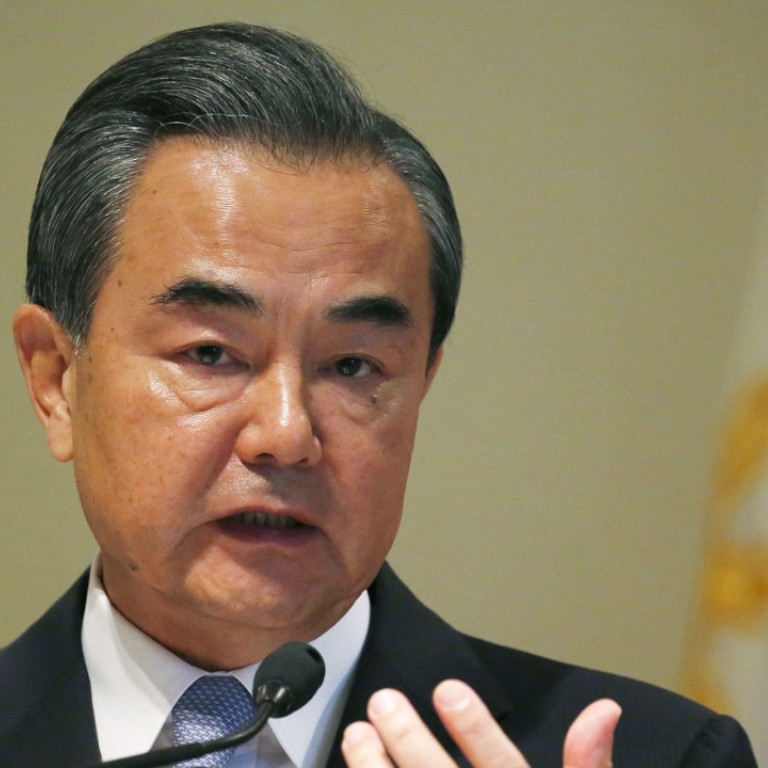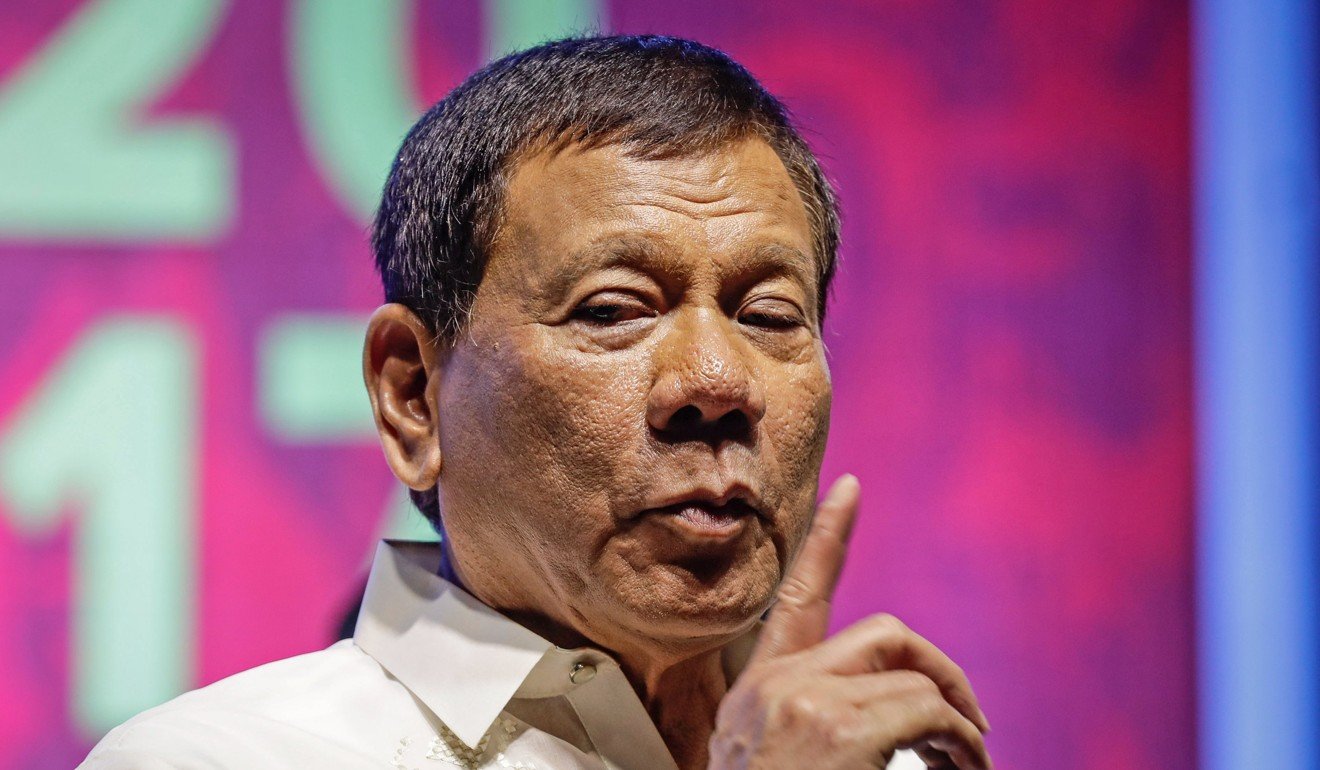
Beijing backs joint energy ventures with Manila in South China Sea
Chinese foreign minister makes remarks after Philippine President Duterte said partner had been found to develop oil fields and exploration
China’s foreign minister on Tuesday said he supported the idea of joint energy ventures with the Philippines in the disputed South China Sea, warning that unilateral action could cause problems and damage both sides.
Wang Yi, on a two-day visit to Manila, made the remarks after President Rodrigo Duterte on Monday said a partner had been found to develop oil fields and exploration, and exploitation would restart this year.
Duterte did not identify the partner. The energy ministry on July 12 said drilling at the Reed Bank, suspended in 2014, might resume before year-end, and the government was preparing to offer new blocks to investors in bidding in December.
“In waters where there are overlapping maritime rights and interests, if one party goes for unilateral development, and the other party takes the same action, that might complicate the situation at sea,” Wang told a news conference.
“That might lead to tension, and as the end result, nobody would be able to develop resources.”
Xu Liping, a researcher at the Chinese Academy of Social Sciences, said a joint venture would be a big step as it would be the first cooperation between the two sides on a project in the contested waters.
“Both countries must know that if they continue on with their disputes, the benefits of these oil resources in the South China Sea will only go to the West,” Xu said.

In the past, the Philippines has worked with US oil companies to explore waters adjacent to the disputed Spratly Islands.
“Duterte has shown he is keen to cooperate with China in many speeches and he’s obviously made relations with China his priority,” Xu said.
The Philippines suspended energy activities while awaiting a ruling in a case by the Permanent Court of Arbitration in the Hague. When it ruled a year ago, the court invalidated China’s claim to sovereignty over most of the South China Sea, through which more than US$5 trillion of seaborne goods passes each year.
Xu said the Philippines had not been getting more than 30 per cent of oil resources profit from the Western companies.
“I believe China will make a better offer. They could be getting at least 10 per cent more profit than before,” he said.
Xu said China had shown it had the money and technology to carry out oil exploration in the area, and that cooperation between the Philippines and China could provide a model for other countries involved in disputes with China over the South China Sea.
Philippine Foreign Secretary Alan Peter Cayetano said the proposal to jointly develop resources in the disputed waters began in 1986, but the two countries “had not found wisdom to be able to push through to the next step”.
Experts say setting up such an arrangement would be extremely complex and politically sensitive. Both countries claim the oil and gas reserves, and a deal on sharing could be seen as legitimising the other side’s claim, or giving away sovereign territory.
On the other hand, China’s Foreign Ministry spokesman Lu Kang has urged a halt to a joint oil drilling project by Spanish oil company Repsol and Vietnam.
Drilling began in mid-June in Vietnam’s Block 136/3, which is licensed to Vietnam’s state oil firm, Spain’s Repsol and Mubadala Development Co of the United Arab Emirates.
The block lies inside the U-shaped “nine-dash line” that marks the vast area that China claims in the sea and overlaps what it says are its own oil concessions.
Wang also said on Tuesday that China and Southeast Asian countries were firming up a maritime code of conduct framework, showing the world they could handle differences.
However, in a veiled reference to the United States, he said it was important for regional friends to stand up to outside interference.
“If there are still some non-regional forces in the region, they don’t want to see stability and want to stir up trouble, we need to stand together and say ‘No’ to them together,” he said.


